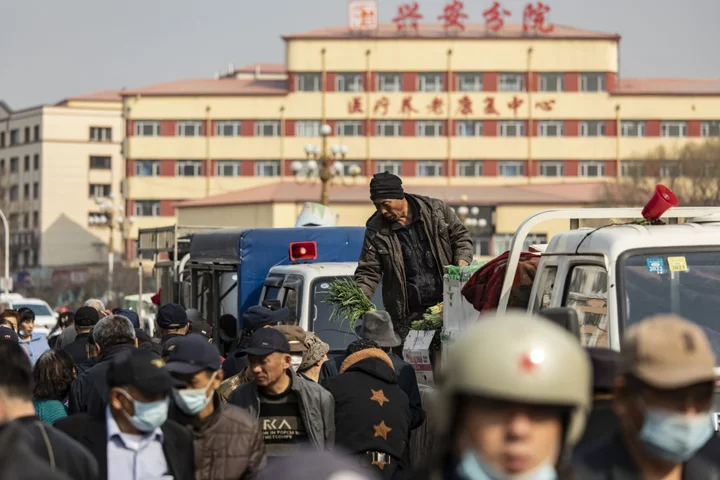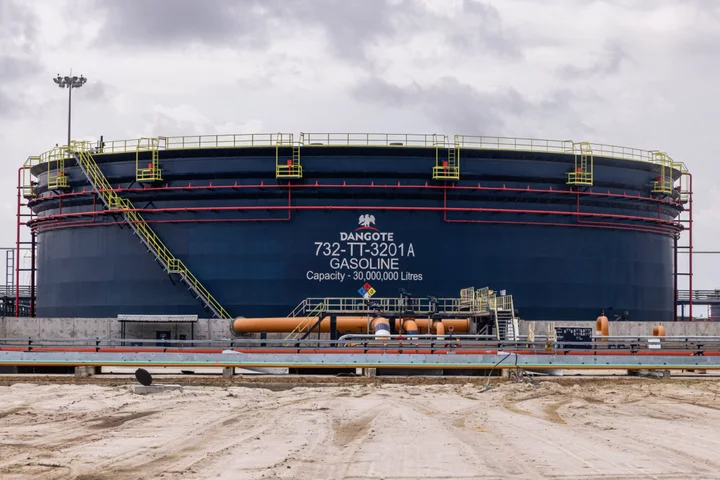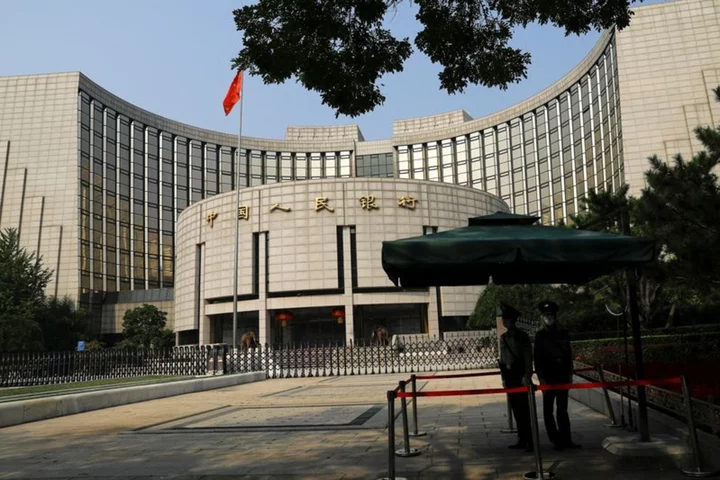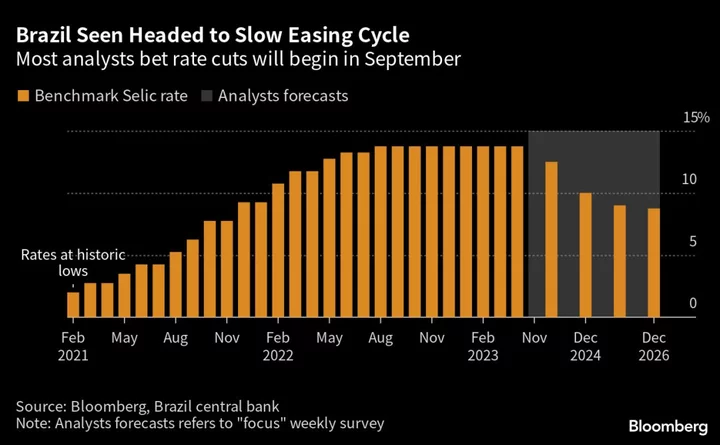Financial stress faced by China’s local governments is limiting fiscal support for the economy’s recovery, with half of cities facing difficulty in managing the interest payments on their debt last year.
That’s according to a report by Rhodium Group researchers, who examined annual reports from 205 Chinese cities and nearly 3,000 local government financing vehicles — state-owned companies that carry out infrastructure investment.
Half of cities faced debt service costs above 10% of their total income, a threshold the researchers see as indicating difficulty managing debt servicing costs. That’s up from a third in 2021.
The increase in local government debt service burden relative to income was driven by widespread pandemic restrictions and a property slump last year, which reduced tax and land sales revenues, according to Rhodium. Two cities — Lanzhou in western China and Guilin in southern China — faced debt service costs greater than their total income last year, it found.
“The current weakness of localities’ finances prevents Beijing from utilizing fiscal policy to support the economy. In fact, this is the primary reason that there has been no meaningful fiscal support for China’s recovery this year,” the researchers said in the report.
Economists have downgraded their growth expectations for this year to closer to the government’s official target of about 5% after recent data showed a slide in industrial output and investment, including in infrastructure. Construction activity has weakened, while global commodity prices have slumped. Official data this week signaled further weakeness in manufacturing, much of which feeds the construction sector.
Local government finance vehicles, or LGFVs, were the most frequently cited top risk in a May survey of 53 Asia-based economists, money managers and strategists at financial institutions conducted by Bloomberg. Investor fears have risen this year that an LGFV might default for the first time on a publicly issued bond, potentially destabilizing China’s financial system.
An LGFV in the southwestern city of Kunming made an unusual last-minute bond payment last month, raising fears around credit risk. In Rhodium’s analysis, Kunming faced the fourth-highest debt servicing burden of any Chinese city in 2022.
Rhodium’s report found that estimated borrowing costs at LGFVs fell for a third consecutive year to 5.36% in 2022, but they remain higher than the average corporate lending interest rate of 4.12%. That’s because LGFVs tend to borrow more from so-called shadow banks.
The falling interest cost is partly due to more short-term borrowing, which makes up 25.7% of LGFVs total interest-bearing debt compared to 21% in 2018, increasing their need to refinance their debt. LGFVs cash assets fell in 2022, though their land assets rose as they stepped in to support local land markets, the report found.
Beijing urgently needs to restructure local government debt in order to regain the ability to implement meaningful fiscal stimulus, Rhodium said. A plan for that might come at China’s National Financial Work Conference, which could be held in the summer, it said.









